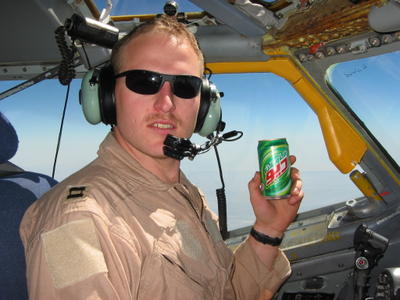Moral Equivalency is not a sign of unbiased reporting, but CNN seems to think it is :
And then, the crack of gunfire is heard and the soldier in the turret slumps forward.
"Allahu Akbar (God is Great)!" is the exclamation as the sniper's vehicle starts and they slip away.
The deadly tactic is one the U.S. military also uses to take out insurgents.
Retired Gunnery Sgt. Jack Coughlin was one of the top U.S. Marine Corps snipers in Iraq and has written a book about his experiences -- "Shooter: The Autobiography of the Top-Ranked Marine Sniper."
"I have over 60 kills," he told CNN's Gary Tuchman. "We seek out the enemy and eliminate them with precision fire."
It gets worse. CNN admits that they are aiding and abetting the enemy's plans:
We are assuming they included the sniper tape to prove the authenticity of the Al-Shimary interview tape and to establish their credibility. Of course, we also understood that some might conclude there is a public relations benefit for the insurgents if we aired the material, especially on CNN International.
Yes, war is a terrible thing, and yes, the American people deserve to know the truth. Unfortunatly, picking and choosing the most negative, dramatic footage to air is not only demoralizing to those who are in harm's way, but it erodes support for the war by concealing the bigger picture of why we are there. It is not presenting the truth, nor even a real part of the truth. As Steve Taylor wrote in "Meat the Press (1984)":
When the ratings point the camera's eye
They can state the facts while telling a lie
And as Stephen Crumbacher wrote in "Perfect Crime": "The camera never lies, though edits often do".
This mantra from the left calling for a US defeat will take its toll, unfortunately. And Americans will pay with their lives if they succeed. Not merely those who today will have to face an opponent cheered on by Ted Turner's dogs, but also those who in the future will have their blood spilled on American soil if we fail to bring this implacable enemy to its knees.
As John Lewis Gaddis points out in the above linked speech :
we need to take more seriously than we have the question of whether regimes that treat theirown people this brutally are not likely to behave similarly toward the outside world. Internationalrelations theorists have shown quite convincingly that democratic regimes tend not to go to war withone another - that civil society at home tends to project itself onto the international scene. But whatabout the other side of the equation? What about authoritarian societies and the terror that sustainsthem? Are such states ever "normal" states, to be dealt with in normal ways?
He is talking about the Cold War, but the point is still valid. Don't let the narrow focus of the camera fool you. We are on the right side, they are on the wrong. We are the good guys, they are the bad.
It really is that simple.


No comments:
Post a Comment